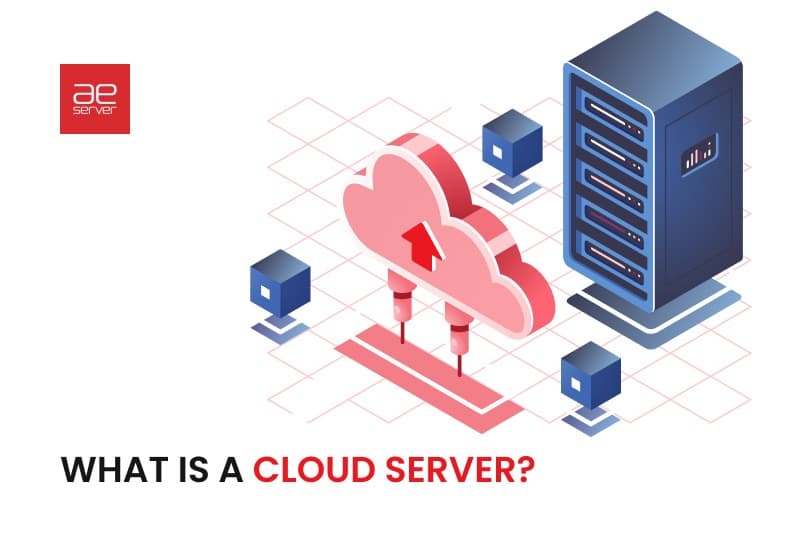
Guide: What is a Cloud Server?
Distant servers are a pivotal component of modern IT infrastructure. They have revolutionized the way firms and individuals access and manage computing resources. At its core, a remote server is a digital platform hosted in a remote environment. It means it operates on a remote platform rather than a physical machine. This allows for flexibility, scalability, and cost-efficiency. Those benefits traditional on-premises platforms struggle to match. In our article, we will tell you about what cloud servers are, the best providers, and future trends in technology. So, stay with us, read the article to the end, and get the valuable information.
How Cloud Servers Work?
They operate using digitization technology. It enables the creation of many digital instances on a single physical platform. These digital instances are known as virtual machines (VMs). They’re isolated from one another and mimic the behavior of a physical platform. The key components of how remote platforms work include: Digitization. Cloud servers leverage digitization to create VMs. Each of these has its own operating system, applications, and resources. This isolation ensures that one VM’s activities do not affect others.
- Resource Allocation. Suppliers divide resources to these VMs as per the user’s requirements. This allocation can be adjusted in real time, allowing for scaling up or down as needed.
- Redundancy. Platforms are typically hosted in data centers with redundant hardware and backup systems. This ensures high availability and minimizes downtime.
- Network Connectivity. Cloud computing servers rely on robust network infrastructure. It’s to ease data transfer between VMs and to and from the internet. This network connectivity is an essential part of their operation.
- Management and Control. Users can manage their remote platforms. They do it through web-based control panels, APIs, or command-line interfaces. This allows for easy configuration, monitoring, and management of resources.
Advantages of Cloud Servers
These platforms offer many advantages. They make them a preferred choice for many businesses and individuals. These key benefits encompass scalability. It ensures that resources can be effortlessly adjusted to match dynamic requirements. In this block, we will focus on the various benefits of remote platforms. So, stay with us to get the valuable information.
Scalability
Сloud computing server software can be easily scaled up or down to meet the changing demands of your applications. This ensures that you only pay for the resources you actually use.
Cost-Efficiency
Remote platforms cut the need for on-premises hardware and maintenance. And they reduce capital expenditures and operational costs.
High Availability
Suppliers offer redundant infrastructure and data centers, which results in minimal downtime. This is critical for mission-critical applications.
Flexibility
You can choose the specific configuration that suits your needs. Whether it’s more processing power, memory, or storage.
Remote Access
Сloud servers can be accessed from anywhere with an internet connection. It makes remote work and management a breeze.
Data Backup and Recovery
Suppliers often offer built-in backup and disaster recovery solutions. It ensures data security and protection.
Security
Leading suppliers invest heavily in security measures. It offers strong encryption, access controls, and compliance certifications.
Eco-Friendly
Cloud computing servers can be more environmentally friendly. It reduces the need for energy-intensive on-premises platforms.
Global Reach
Suppliers have data centers in many geographic regions. It enables you to reach a global audience with low latency.

Popular Cloud Server Providers
Several suppliers offer the best solutions. In this block, we will introduce you to four of the most prominent suppliers. And we will delve into the specific offerings and features they bring to the table. We will go from market leaders like Amazon Web Services (AWS) to regional players such as Aeserver. We will provide insights into their strengths and specializations. Our aim is to equip you with a well-rounded understanding of the diverse options available, allowing you to make informed decisions about the cloud computing server software supplier that best aligns with your unique needs and objectives.
AESERVER
Aeserver is one of the leading suppliers with a strong presence in the Middle East. Here are some key features and offerings of Aeserver:
- Geographic Reach. Aeserver operates data centers in the United Arab Emirates, Bahrain, and Saudi Arabia. This regional focus ensures low-latency access for users in the Middle East.
- Virtual Private Servers (VPS). Aeserver offers cloud VPS hosting, providing users with dedicated digital resources for their applications.
- Web Hosting. They provide web hosting services for firms and individuals. It includes domain registration, email hosting, and website-building tools.
- Managed Services. Aeserver offers managed services, taking care of platform administration, security, and maintenance.
- Security. This cloud server provider emphasizes security and offers features like DDoS protection, SSL certificates, and secure backup solutions.
- 24/7 Support. Their customer support is available around the clock. It ensures that users can get help when needed.
- Pricing. Aeserver offers competitive pricing. Users can choose from various plans to meet their specific requirements.
Amazon Web Services (AWS)
It’s one of the most widely recognized cloud service providers. It boasts a vast range of services and global data centers. Some key features of AWS include:
- Elastic Compute Cloud (EC2). AWS EC2 allows users to create and manage digital machines at a distance. Users can select from various instance types and scale as needed.
- AWS Lambda. For serverless work, AWS Lambda enables developers to run code in response to events. It’s without provisioning or managing the platform.
- Relational Database Service (RDS). AWS offers managed database services. It includes popular options like MySQL, PostgreSQL, and Microsoft SQL Server.
- S3. Simple Storage Service (S3) is a highly scalable object storage service. It offers secure and efficient data storage and retrieval.
- AI and Machine Learning. This cloud computing server company provides a suite of AI and ML services. It includes SageMaker for model development and recognition.
- IoT. AWS IoT Core enables the connection and management of IoT devices at scale.
Microsoft Azure
Microsoft Azure is another major player in the remote services market. It offers a comprehensive set of remote solutions. Some of the key Azure offerings include:
- Digital Machines. They enable users to deploy Windows or Linux-based digital servers in the cloud.
- Azure Functions. Azure’s platform lets developers run code in response to events. And it’s without managing infrastructure.
- Azure SQL Database. Managed relational database services for SQL Server, PostgreSQL, MySQL, and more.
- Azure Blob Storage. A scalable object storage service for unstructured data. It’s ideal for backup and archival purposes.
- ML. It provides tools for building, training, and deploying ML models.
- IoT Hub. It allows for secure and scalable IoT device management and data ingestion.
Google Cloud Platform (GCP)
This cloud computing server provider is known for its advanced data analytics and ML capabilities. Some of the key features of GCP include:
- Compute Engine. It allows users to create and manage digital machines running on Google’s infrastructure.
- App Engine. A platform-as-a-service (PaaS) offering for building and deploying applications without managing the underlying infrastructure.
- BigQuery. Google’s fully managed, serverless, and highly scalable data warehouse for analytics.
- Remote Storage. Scalable object storage with a robust set of features for data storage and retrieval.
- AI and Machine Learning. Google offers ML and artificial intelligence services. They’re Google Cloud ML Engine and Vision AI.
- Kubernetes Engine. Managed Kubernetes service for container orchestration, ideal for deploying and managing containerized applications.
Future Trends in Cloud Server Technology
The cloud computing server software landscape continues to evolve rapidly. It’s driven by advancements in technology and changing user requirements. Here are some future trends to watch:
- Edge Computing. There is the rise of IoT devices and the need for low-latency processing. This feature is becoming increasingly important. Suppliers are extending their services to the edge to meet these demands.
- Hybrid and Multi-Cloud. Many firms are adopting these strategies to balance flexibility and security. Suppliers are offering more tools to simplify deployments.
- Security and Compliance. As remote platform usage grows, so do security concerns. Suppliers will continue to enhance their security measures and compliance certifications.
- Serverless Computing. Serverless architecture is what cloud servers are giving the users. We can expect more serverless offerings and integration into various platforms.
- AI and ML Integration. AI and ML will be integrated more deeply into remote platforms. It makes it easier for users to develop and deploy ML models.
FAQ
-
Can I use a Cloud Server for my small business?
Yes, cloud servers are an excellent choice for small businesses. They offer scalability, cost-efficiency, and the ability to match resources to your needs. Small businesses can start with minimal resources and expand as they grow. It’s without significant upfront costs for hardware.
-
What are some common use cases for Cloud Servers?
They include web hosting, development and testing, data storage and backup, e-commerce, big data and analytics, content delivery, and disaster recovery.
-
Are Cloud Servers secure?
Cloud servers can be very secure. But security depends on various factors. It includes the cloud provider and the measures you install. Leading cloud providers invest in robust security measures. It includes data encryption, access controls, and compliance certifications. However, users are responsible for securing their applications and data within the cloud. Proper configuration, strong access controls, regular updates, and security best practices are essential.



